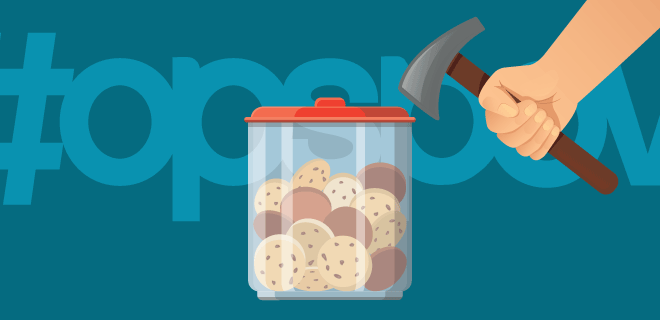
Google’s cookie deprecation delay to early 2025 offers agencies a crucial window to refine their strategies. Ed Leahy, Head of Sales, PCH Media explores how leveraging first-party data, engaging in data collaboration, and prioritizing consumer privacy can position agencies for success.
After continued challenges following the phase-out of third-party cookies for one percent of Chrome users in January, Google has once again delayed cookie deprecation plans. With the timeline pushed to early 2025, agencies now have more time to test targeting options to ensure that they’re prepared for the cookieless world.
First-party data is quickly becoming a top alternative to third-party cookies. However, some targeting solutions fall short on reliability, as data can be siloed and must always be fully compliant with changing privacy regulations.
Agencies must continue testing to ensure success when Google moves forward with third-party cookie deprecation. Here are three considerations for them to keep in mind.
Three Ways Marketing Agencies Can Capitalize on the Cookie Deprecation Delay
1. First-Party Data Supports Agencies of All Sizes
Twenty-five percent of U.S. agencies are still reliant on third-party cookies, but they now have more time to build their datasets to help their clients reach the right audiences. Larger agencies, which typically have better access to a wide range of first-party data, also have the bandwidth to work directly with companies such as LiveRamp and The Trade Desk to enhance their datasets and more accurately pinpoint consumers.
Smaller agencies, on the other hand, might not have those resources and can quickly realize new robust datasets by working with privacy-compliant first-party data providers to fill the gap. These providers often offer managed services solutions, helping smaller agencies supplement limited resources by providing access to robust first-party data. By collaborating with providers, smaller agencies can access segments they might not have had before, allowing them to continue reaching the right audiences on behalf of their clients.
No matter the size of a marketing agency, first-party datasets will be key to successfully targeting consumers and optimizing return on ad spend (ROAS) in the wake of third-party cookie deprecation.
2. Find New Audiences Through Data Collaboration
Leveraging high-quality, first-party data from reliable providers and collaborating across industries opens up a universe of potential new consumers. By combining datasets, agencies in different industries can enrich their consumer information and identify unexpected—and relevant—audiences by analyzing overlapping interests. Through outside-the-box connections, agencies receive new perspectives they might not have thought to explore.
When evaluating data providers, agencies should work with those with a strong user acquisition model, with new users coming in daily to receive fresh and relevant consumer data. This ensures that the information and accompanying insights are always up to date, helping to increase campaign effectiveness and efficiency.
3. Support Consumers’ Privacy Needs
The news of third-party cookie deprecation has increased consumers’ concerns about their data and online privacy. Fifty-two percent of Americans over 25 are willing to stop using brands that don’t provide an option not to track personal data, according to Publishers Clearing House’s (PCH) Data Privacy and Ethics report. Marketing agencies must look to build first-party databases that are permissioned and privacy compliant – and that starts with transparency.
When collecting consumer data, agencies should ensure that clients allow users to opt out of tracking and clearly state how they use their data via data collection policies. By providing consumers more power and transparency, collecting first-party data will be permissioned and privacy-centric, ultimately building trust and loyalty with users.
The Race Against Cookie Deprecation
The latest delay in third-party cookie deprecation presents an opportunity for agencies to rethink their targeting strategies and learn more about how building – or partnering – to create first-party data infrastructures can play a key role in their long-term success.
By developing owned first-party datasets, discovering relevant, untapped audiences through data collaboration, and collecting permissioned data to remain privacy compliant — agencies of all sizes will set themselves up for success once Chrome fully phases out cookies. With the right strategies in place, agencies can fill the gap left by cookie deprecation and help their clients better personalize campaigns for their specific audiences.